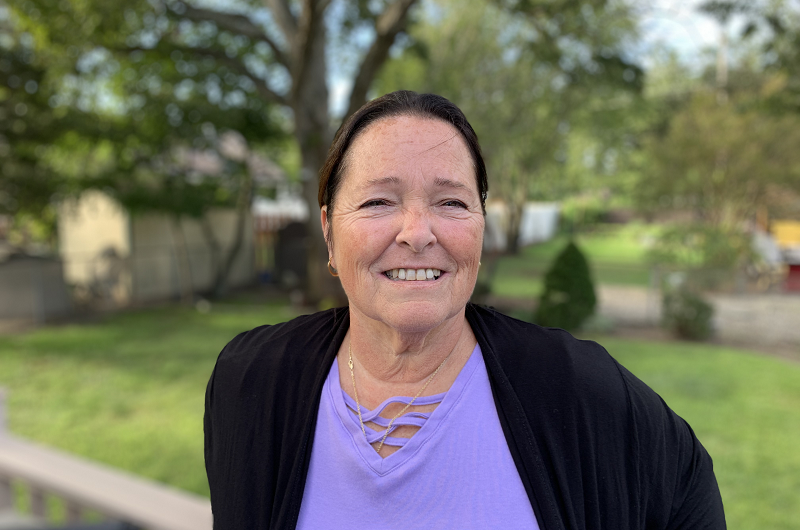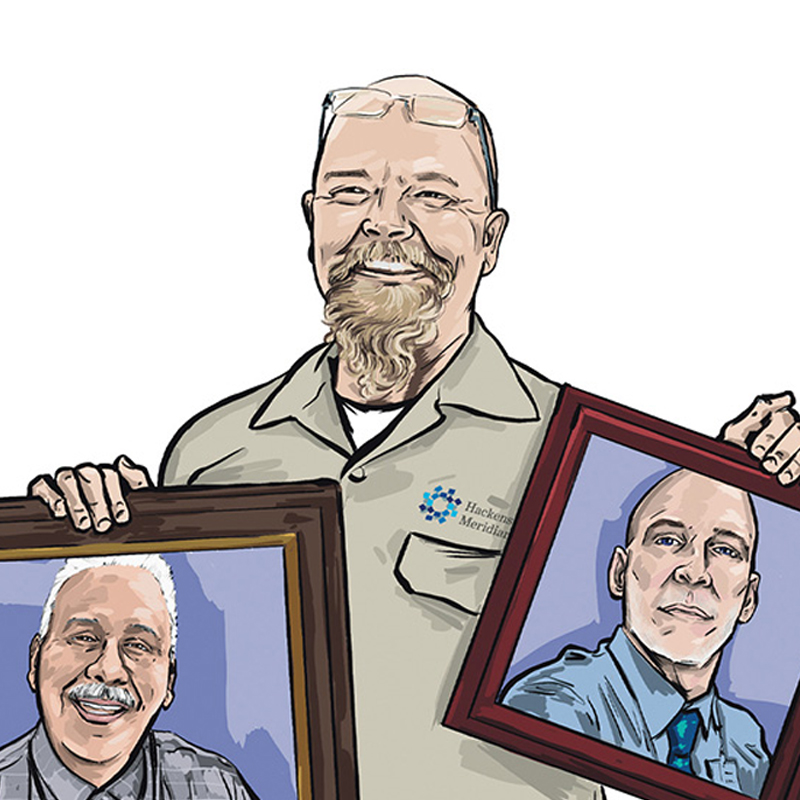

Terri Apuzzu, 62, and her husband, Paul, had just finished visiting their daughter and brand-new grandson when Terri felt a pain in her back. At first, she dismissed it as a leftover symptom from a previous car accident. But two days later, her back was still hurting and she was also feeling out of breath.
“I said to my husband, ‘Something's wrong. I think I need to go to the hospital,’” says Terri, who lives in Brick, New Jersey. Her husband took her to Ocean University Medical Center, where doctors ran tests, including an EKG and blood work, which revealed that she was having a heart attack. Terri was shocked.
“It didn't even occur to me or else I would've gone to the hospital sooner,” says Terri. “I was leaving this happy event because my daughter had just had my youngest grandson. A heart attack was the farthest thing from my mind.”
Different Heart Attack Symptoms in Women
Back pain and shortness of breath were Terri’s only two symptoms, which is not unusual for women who don’t always have classic heart attack symptoms such as pain in the left arm or chest. Her EKG showed a severe blockage of the left anterior descending artery (LAD), also known as a “widow-maker” heart attack, which, despite its name, also affects women.
Terri presented an added complication. She is allergic to aspirin, which would be a critical part of her long-term treatment. Being part of a coordinated network made it easy for Ocean’s team to arrange a seamless transfer to Jersey Shore University Medical Center, where the complexities of Terri’s medical needs could be managed if complications arose.
There, interventional cardiologist Matthew S. Schoenfeld, M.D., implanted a coronary stent in a minimally invasive procedure to reopen her blocked artery. “We used intravascular ultrasound to fix the blockage with a large stent. It allows us to get the best result and reduce the risk of any issues with the stent down the road,” he says.
Following a stent placement, patients are put on antiplatelet therapy, which usually includes aspirin, to minimize the risk of blood clots. Because Terri is allergic to aspirin, she needed to be desensitized to it first. That process involved starting her on an extremely low dose of aspirin and slowly increasing it while monitoring for reactions.
“You need to be on one antiplatelet medication for life after a stent,” explains Dr. Schoenfeld. “We're going to keep her on the aspirin long-term because if you stop the aspirin, you can become allergic again, and we don’t want that to happen.”
A Change of Lifestyle
After Terri recovered from the stent procedure, Dr. Schoenfeld recommended cardiac rehabilitation at Ocean, a 16-week outpatient program designed to help heart patients improve their cardiovascular health through supervised exercise and nutritional counseling.
“They were a fantastic group to work with. They were encouraging and compassionate and gave me the confidence and support I needed to change my lifestyle,” says Terri, who adds that she cried on her last day there.
Dr. Schoenfeld is very pleased with Terri’s recovery: “She's really worked on her diet and exercise, and she's lost a good amount of weight. Her cholesterol numbers and blood pressure look really good. She's doing very well.”
Now 60 pounds lighter, Terri continues to put what she learned at cardiac rehab into action. She’s joined a gym, tries to eat healthily and has more energy than before. “I am finding time for myself and continuing to better myself and take care of myself the way I should,” she says. “I've got a wonderful husband, two beautiful daughters and three awesome grandkids, and I want to be around for them for a long time.”
Next Steps & Resouces:
- Meet our sources: Matthew S. Schoenfeld, M.D.
- To make an appointment with a cardiologist near you, call 800-822-8905 or visit our website.
- Learn about our cardiology services
- Get screened for heart disease

Heart-Stopping Saga Ends Happily for Westwood, NJ, Man

Denville, New Jersey, Father Receives Lifesaving Care After Life-threatening Aortic Dissection
